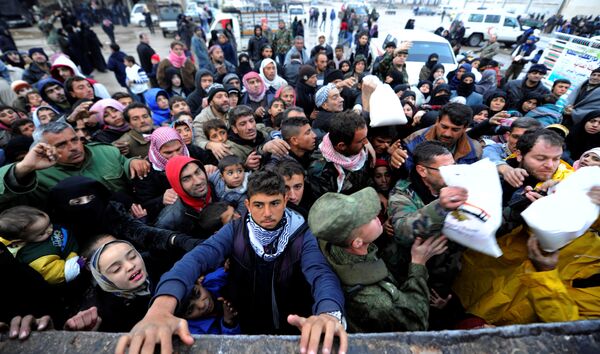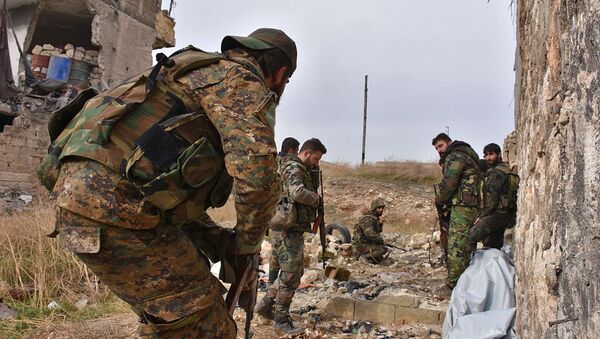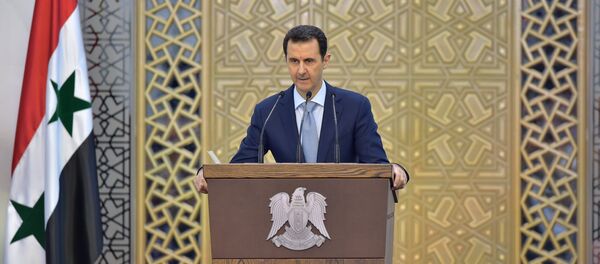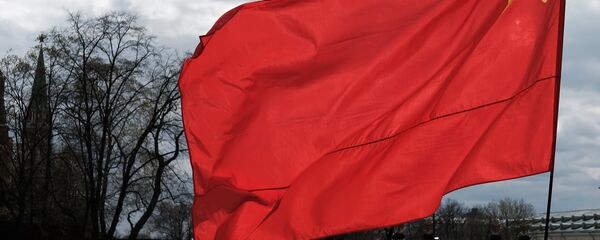On Wednesday the leaders of the US, Britain, France, Germany, Italy and Canada signaled they would impose economic and political sanctions against the allies of Syrian president Bashar al-Assad and demanded that the Russian leadership and Iran influence Damascus over the situation in Aleppo.
"The continuation of the sanctions rhetoric causes regret," Kremlin spokesperson Dmitry Peskov said, commenting on the issue, "Instead of helping settle the Syrian crisis, our partners don't do anything effectively and just continue threatening to impose some new absurd sanctions."
It has already become clear that the full liberation of Aleppo by the Syrian Arab Army (SAA) backed by the Russian Aerospace Forces is just around the corner.
Do add insult to injury Donald Trump's win has definitely upset the applecart of NATO war planners in Syria.
"Something happened that was not supposed to happen," Armstrong noted, speaking to Radio Sputnik, "The new incoming president [of the US] is not interested in sanctions against Syria, as far as I can see; nor is he interested in continuing the policy of 'Assad must go.'"
Those who continue to fret and fume over Russia's operation in Aleppo have obviously misread the situation and failed to understand that the trend has changed, the former Canadian diplomat noted.
Armstrong drew attention to the anti-Russian campaign that continues to fester in the West.
"We have this ridiculous fake news thing going on and this absurd stuff of Russia fixing the American [presidential] election which, thank heavens, the White House has now basically formally denied as they say," the Canadian analyst remarked.
It will be interesting to watch what the US mainstream media establishment will do, when the new boss takes office, he added, referring to Trump's January inauguration.
But what if the West exerts sanctions on Russia over Aleppo?
According to Armstrong, Russia has done pretty good since the sanctions were imposed; at the same time it is unlikely that everybody would now buy into the West's narrative about Syria.
"There is too much evidence of people from eastern Aleppo hugging and kissing the Syrian [Arab] Army," he noted and added ironically: "It's better [for them], I think, to just change the subject and pretend it never happened."

"Everybody in the world is revolting," the analyst highlighted citing the recent Sputnik.Polls survey.
The survey indicated that more than half of respondents in Germany, France and Italy believe that the US has not coped with being a world leader since the collapse of the USSR in 1991.
The survey was conducted by the oldest public polling company in France, Ifop, in July 2016. In all, 3,006 people over 18 from France, Germany and Italy were polled.
"The revolt is on and we see it all over the place," he added, referring to the recent referendum in Italy and the Brexit vote in the UK.
In his recent "Sitrep" report Armstrong drew parallels between US President-elect Donald Trump and Russian President Vladimir Putin.
"Strange as it may seem, Trump and Putin have the same job: they both want to get their countries working again; or, if you prefer, to make America/Russia great again… The difference is that Russia is 20 years further along the curve, having got through the collapse of empire," he wrote.
"The USA has (we hope) reached the end of the New World Order/Neo-Con fantasy and given up its 'imperial overreach.' Moscow did, long ago," Armstrong added.
Commenting on the US State Department's recent diplomatic maneuvers in Syria, Armstrong said that the outgoing administration is "not capable of making an agreement."
Although US Secretary of State John Kerry and Russian Foreign Ministry Sergei Lavrov held negotiations on Syria for months, the agreements have been repeatedly marred by Washington, according to the analyst.
However, the incoming Trump administration is likely to focus on defeating Daesh in the first place, the analyst believes.
In light of this it is possible that the US and Russia will finally break out from the vicious circle of distrust.



